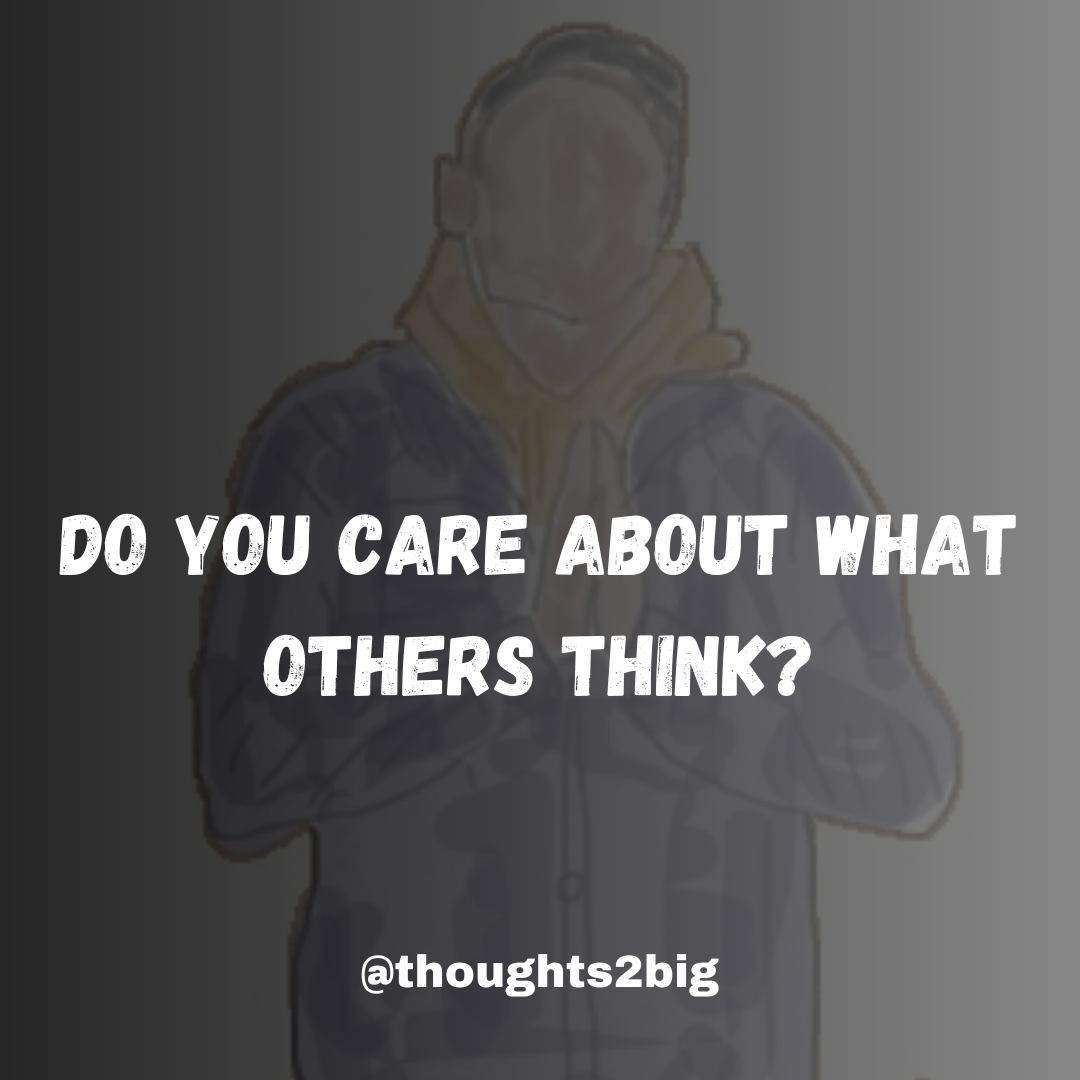Do You Care About What Others Think?

Do care about what others think?
I try to follow a lot of Stoic ways of living. That’s happened naturally through a disposition I have for those viewpoints, but it also comes through study. I think that, for the most part, we can live in the most healthy ways by adhering to some core Stoic values.
Not all of them are useful, but in general learning to reduce the effect that external things have on us is an effective way to fortify and maintain our mental health. It’s easier said than done of course, and it’s not possible to be this way all of the time.
With that in mind, today I want to talk about the idea of not caring about what others think. In theory this is a good way to be. In practice it’s very difficult to not care, and often actively trying to be indifferent to how other people view us makes us bitter and resentful. There’s a fine line to walk, and finding it can be difficult.
First and foremost, it’s probably unwise to not care about what everyone thinks. Not caring about what most people think is more reasonable. You should probably care about how some people think about you, and more importantly you should be concerned with how you make these people feel.
I try not to care about what strangers think about me. But I do care about how my closest friends and family consider me, because those people bring direct value to my life. The people in your circle are a reflection of you. So caring about their opinions is essential for staying on track.
That said, it’s not easy to ignore how other people feel about us, especially when these people aren’t total strangers. Add in the lack of humanity associated with social media, and you can often be left knowing that certain people don’t like you, but never knowing why.
It can be hard to handle, and even more so if you’re anxious, or if the person is someone you respected and always liked.
It’s not an easy pill to swallow – knowing that someone has consciously opted out, and has made the effort to not hear from you – but this is natural. There is no person who has ever lived that has been universally liked. If you’re like me, and find yourself wanting to be liked sometimes, knowing that someone doesn’t like you can hurt, but it’s important that we don’t respond to this stuff with resentment.
If a person has a problem with you, that’s their business and not your own. We don’t have creative control over how other people view us. Life would be disastrous if we did, because none of the positive interactions would ever be genuine. These days, if someone dislikes me, or takes issue with me, I consider it a directional prompt. These people are filters. They allow us to see that some people aren’t meant for us. Or perhaps that there is flaws in the way we are viewing things. Either way, we can learn from these experiences.
What’s important is that you are being authentic. If you are being the real you and someone doesn’t like you then at least you take solace in the fact that you weren’t hiding behind a superficial version of you. If I’m being who I truly am and someone doesn’t value that version of me, then that’s their problem. But it can often feel like it’s my problem.
We tend to hold ourselves to much higher standards than we do other people. We think everyone is watching us. That our decisions have graver impacts than the decisions of the people around us. This is due something called the spotlight effect.
If we gave ourselves the slack we naturally give to other people, we’d understand that people rarely think about us. When they say things about us it’s usually a flippant throwaway comment that they barely thought about.
We shouldn’t care about how other people think about us. We should care about how we think about ourselves. If we get hung up on the thoughts of others, it’s usually because we’re harbouring some hatred for the self.
So one effective way of learning to stop caring about the opinions of other people is to learn how to love ourselves, flaws included. It can be tricky, and it’s something I myself struggle with from time to time but it’s a worthwhile endeavour.
Learning to block out the opinions of people who do not know us personally, and instead focusing on taking cues from ourselves and from the people we value is a more nuanced and accurate version of ‘You shouldn’t care about what other people think’.
Of course you should. You just shouldn’t care about what every person thinks.
I have a Substack too if you’d like to read more.